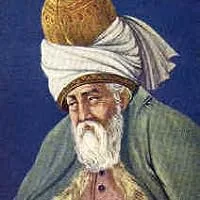Lord of the Flies
 |
| The Book (1954) |
(1963 movie, directed by Peter Brook)
(1990 movie, directed by Harry Hook)
This book is a popular choice among English literature students. It fosters engaging debate on the darker aspects of human nature, leadership, and the evil that resides within us. There is a fine line between remaining civilised and succumbing to savagery.
It was the period after WW2; the world must have been perplexed by the scale of the atrocities that took place during the war. The level of violence and destruction, especially after Hiroshima and Nagasaki, must have prompted questions about the evil that resides within each person. The 1950s still likely were not among the most peaceful times, as Russians had learned to produce the A-bomb and the US was moving into H-bombs.
Golding's story depicts a group of preteen boys stranded on an isolated island after their plane crashes. With limited resources, they attempt to survive until rescue arrives. The boys try to establish law and order by choosing a leader. Gradually, a rebel group forms among them, who would eventually go to great lengths to enforce their own ways.
 |
| 1963 film |
.jpeg) |
| 1990 film |
Both the 1963 and 1990 versions feature mainly young characters, but I prefer the 1963 one. Maybe I am a fan of 'black-and-white'; it has more depth and gives the surreal feel of being trapped on an island. However, it also evoked a sense of watching a secondary school drama.
Both good and evil reside in the human soul. As individuals, we must remind ourselves to stay on the right path and not stray into darkness. Human history has shown that no single form of governance can withstand the test of time. When humans first began living in communities, they believed that autocratic rule by a monarch with demigod-like status would suffice. Resentment grew when divisive rulership became evident. Revolution was then justified. They thought that communism was the answer. However, human greed eventually overshadowed the desire for equality. It too collapsed. The free market often degenerated into vulture capitalism, and human follies permeated all systems. In a world darkened by terrible deeds, regular self-questioning and reasoning seem to be the only way social justice can prevail. Eternal vigilance is the price of liberty.
P.S. 'Lord of the Flies' is another reference to Satan (Beelzebub).





.jpeg)





















